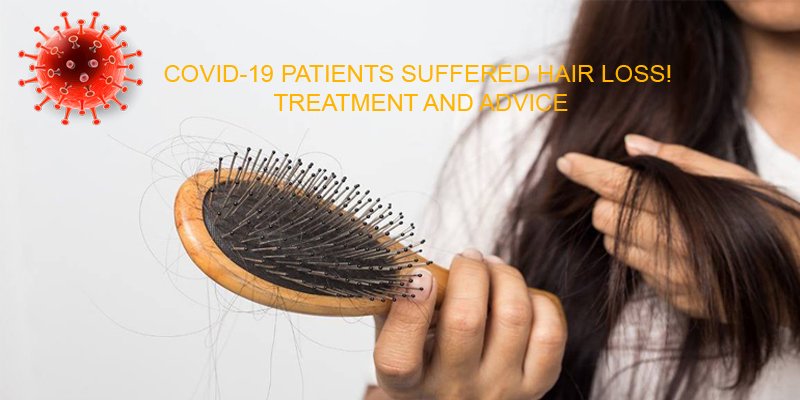The pandemic phase has been difficult for everyone. Most people have been talking about hair loss since the covid-19 pandemic. What kind of hair loss is it? How long does it last? How can we even pr guy event it and are there any treatment options or not? So many questions are coming to our minds right now, well, there are multiple things that covid-19 can cause.
That viral infection has created the perfect storm for an uptick in the number of cases of hair loss. Here are Some of the hair loss problems that most people are facing
Telogen effluvium
In the majority of cases, the type of hair loss that most people are facing is called telogen effluvium. This condition can happen when you face some stressful event and that can trigger telogen effluvium. Although It’s not a major problem that the hair that is shed will eventually grow back.
Alopecia areata
Pandemic was difficult for us. Many of us were anxious and stressed. And covid-19 affected our immunity system drastically. Approximately 20 to 25% of people experienced alopecia areata after covid.
The symptoms of alopecia areata are very slow and unnoticeable in the beginning the hair starts to fall out in small patches. But after some time it becomes noticeable. This condition happens when our immune system gets attacked and that influences our hair follicles, resulting in hair loss.
This condition can result in total hair loss and that’s called alopecia Universalis.
Some other problems can be seen such as baldness, itchy scalp, and other hair diseases that can happen after covid.
Treatments and advice
The hair fall starts after 3-4 months after the infection and it stays for a long time. In that phase, a person can lose lots of hair. But here is the good news, some treatments can help you to grow your hair back
Fix your nutritional deficiencies
Consuming Vitamin D and iron daily can help you to cure telogen effluvium or hair fall after covid. It has been seen that deficiency of iron can reduce hair growth and make hair weak. Have iron supplements or consume food that can fulfill iron deficiency. Have an abundant amount of protein, and include fresh fruits and vegetables in your daily diet.
Change lifestyle
Some practices can control hair loss. Make a goal and avoid some habits that can be harsh on your hair
- Don’t pull and tug while you are brushing your hair.
- Don’t pull on Hairstyles like tight ponytails, buns, and tight braids
- Stay away from chemical treatments that can harm or damage your hair.
Consult with a doctor
If your hair fall is getting out of your control then you should consult with a doctor. Covid often triggers problems like telogen effluvium and this hair fall condition is temporary. However, if you notice the problem is becoming chronic then do not hesitate to visit an expert.
Use hair care products wisely
In this time when your hair roots are already weak, you should take extra care of your hair. Avoid using harsh chemicals to infuse hair products, use a mild sulfate-free shampoo to wash your hair. Avoid applying hair sprays or hair gel frequently and also avoid hair styling tools such as straightener curlers. Apply oils like coconut oil onion oil, these oils will protect your hair cuticles.
Be patient
Hair fall after covid is temporary the hair shedding gradually stops within 8-12 months and that is pretty normal.it can be distressing to watch a handful of hair every time you touch your hair. But don’t be hopeless, be patient.
conclusion
Eat healthy food, follow a healthy lifestyle will help you to cope post covid- 19 syndromes. These problems are not going to stay with you forever so don’t stress over them.







